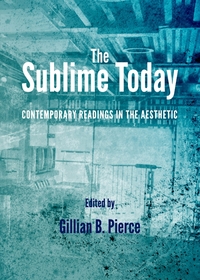Dr. Alex E. Blazer
Department of English
Georgia College & State University
Milledgeville, GA 31061
"blinded by the book": Between Metafictional Madness
and Sublime Solitude in the Work of Paul Auster
I lost my way after the first word, and from then on I could only grope ahead, faltering in the darkness, blinded by the book that had been written for me.
(The New York Trilogy 307)
This paper examines how Paul Auster's metafictional musings about the nature of language, reality, and identity in The New York Trilogy (1987), The Invention of Solitude (1982), and Travels in the Scriptorium (2006) can either trigger a madness that breaks the psyche asunder or pose the possibility of an imagination that can truly confront and counter the radical uncertainty, if not total meaninglessness, of poststructural, postmodern existence. First, the paper looks at the labyrinthine plot of The New York Trilogy, a funhouse complete with intertextual and metafictional mirrors. As detectives in the three novellas attempt to find their men (most notably in one novella, Peter Stillman, who in seeking the pre-Babel language of Adam, suffered a mental breakdown and traumatized his son into silence), they themselves disappear into a red notebook or are blinded by the red notebook, all while a narrator who may be either the real-world Paul Auster or the character in the book Paul Auster, ruminates on the process of writing about the fading subjectivity of his characters in this fictional existence, and in so doing posits his own uncertainty. The boundary-breaking babel of shifting and simulating language in the face of the need for an essential, meaningful truth of the world and one's place in it can either push the postmodern subject into madness like City of Glass's Peter Stillman, Sr., into silence like Peter Stillman, Jr., or into a sublime solitude like Paul Auster. Second, the paper examines Auster's genre blurring The Invention of Solitude. Half memory and half speculation, the "memoir” reveals how the loss of the world in general and a parent in particular strips the mind of identity and forces it to return to its basics: imagination. The process of writing in solitude engenders the psyche's confrontation with the meaningless of existence and the radical uncertainty of subjectivity. It is a sublime experience that at first nullifies but in so doing opens a space for identity creation, albeit ambiguous and contingent. While many critics have deconstructed The New York Trilogy, few if any have sought to reconstruct Auster's notion of existential subjectivity through The Invention of Solitude, especially in light of Auster's recent Travels. Therefore, the paper concludes with a discussion of Travels in the Scriptorium, a recent book that brings back characters from many of Auster's books, only to have them interrogate into existential bewilderment regarding what is dream, reality, and fiction a prisoner named Mr. Blank, who becomes profoundly lost inside the book, Travels in the Scriptorium, as it is being written by Fanshawe, a disappeared writer pursued by a writer-detective in The New York Trilogy. On the last page, the author, Paul Auster himself (or is it still Fanshawe?), takes control of the narrative and offers existential certainty: neither dream nor reality, metafiction constitutes the work of the psyche imagining its place in the world, which is all that can ever be known. The metafictional space of literature exists just outside not only the text but also the real world─inside the psyche. In Auster's view, while existence is contingent if not absolutely absurd and identity is ambiguous if not wholly annulled, the book offers a speculative authority and an imaginary constitution, except, of course, for characters who are vitiated into madness.
This abstract summarizes my presentation, "'blinded by the book': Between Metafictional Madness and Sublime Solitude in the Work of Paul Auster," The Louisville Conference on Literature and Culture since 1900, Louisville, KY, February 21, 2009.
This presentation was revised for publication in The Sublime Today: Contemporary Readings in the Aesthetic. Ed. Gillian B. Pierce. Newcastle-upon-Tyne, Eng.: Cambridge Scholars, 2012. 49-66. Print. Amazon, Cambridge Scholars Publishing.
